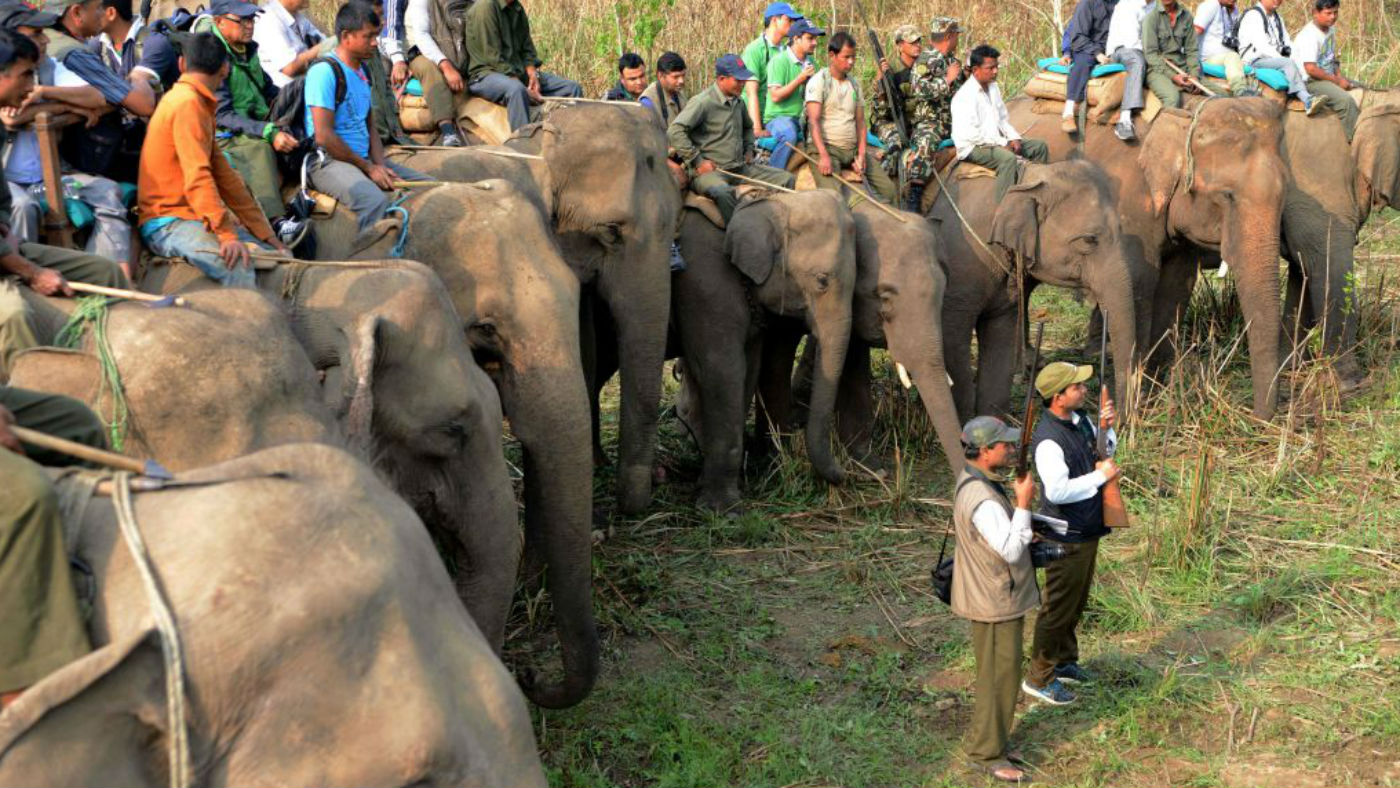Illegal wildlife trade threatens 'nearly half' of Unesco sites
Endangered species on brink of extinction due to poaching, illegal logging and fishing, says WWF

A free daily email with the biggest news stories of the day – and the best features from TheWeek.com
You are now subscribed
Your newsletter sign-up was successful
Almost half of Unesco's World Heritage sites for nature are "plagued" by wildlife criminals, according to a new report.
Conservation charity WWF says poaching, illegal logging and fishing in the supposedly protected areas is driving some endangered species towards extinction.
At least 43 of the 200 designated Unesco sites reported poaching of endangered species such as elephants, rhinos and tigers, while half of the world's 39 marine and coastal world heritage sites have reported illegal fishing.
The Week
Escape your echo chamber. Get the facts behind the news, plus analysis from multiple perspectives.

Sign up for The Week's Free Newsletters
From our morning news briefing to a weekly Good News Newsletter, get the best of The Week delivered directly to your inbox.
From our morning news briefing to a weekly Good News Newsletter, get the best of The Week delivered directly to your inbox.
It is estimated that the illegal wildlife trade is worth £15bn worldwide, adds the report.
Chris Gee, head of conservation at WWF UK, told The Guardian: "Next year, London will host the fourth illegal wildlife trade conference. The UK government must bolster efforts to support the end of this devastating trade.
"Now is not the time to drop the ball on this issue. These findings show that for the future of many of our most endangered species it's a matter of life and death."
Between 1970 and 2012, global wildlife populations dropped almost 60 per cent on average, reports the BBC.
A free daily email with the biggest news stories of the day – and the best features from TheWeek.com
The WWF has called for cooperation between the World Heritage Convention and the Convention on International Trade in Endangered Species to reverse this trend.
-
 Samurai: a ‘blockbuster’ display of Japanese heritage
Samurai: a ‘blockbuster’ display of Japanese heritageThe Week Recommends British Museum show offers a ‘scintillating journey’ through ‘a world of gore, power and artistic beauty’
-
 BMW iX3: a ‘revolution’ for the German car brand
BMW iX3: a ‘revolution’ for the German car brandThe Week Recommends The electric SUV promises a ‘great balance between ride comfort and driving fun’
-
 Munich Security Conference: a showdown between Europe and Trump?
Munich Security Conference: a showdown between Europe and Trump?Today’s Big Question Report suggests European leaders believe they can no longer rely on the US for military support – but decoupling is easier said than done
-
 Epstein files topple law CEO, roil UK government
Epstein files topple law CEO, roil UK governmentSpeed Read Peter Mandelson, Britain’s former ambassador to the US, is caught up in the scandal
-
 Iran and US prepare to meet after skirmishes
Iran and US prepare to meet after skirmishesSpeed Read The incident comes amid heightened tensions in the Middle East
-
 Israel retrieves final hostage’s body from Gaza
Israel retrieves final hostage’s body from GazaSpeed Read The 24-year-old police officer was killed during the initial Hamas attack
-
 China’s Xi targets top general in growing purge
China’s Xi targets top general in growing purgeSpeed Read Zhang Youxia is being investigated over ‘grave violations’ of the law
-
 Panama and Canada are negotiating over a crucial copper mine
Panama and Canada are negotiating over a crucial copper mineIn the Spotlight Panama is set to make a final decision on the mine this summer
-
 Why Greenland’s natural resources are nearly impossible to mine
Why Greenland’s natural resources are nearly impossible to mineThe Explainer The country’s natural landscape makes the task extremely difficult
-
 Iran cuts internet as protests escalate
Iran cuts internet as protests escalateSpeed Reada Government buildings across the country have been set on fire
-
 US nabs ‘shadow’ tanker claimed by Russia
US nabs ‘shadow’ tanker claimed by RussiaSpeed Read The ship was one of two vessels seized by the US military